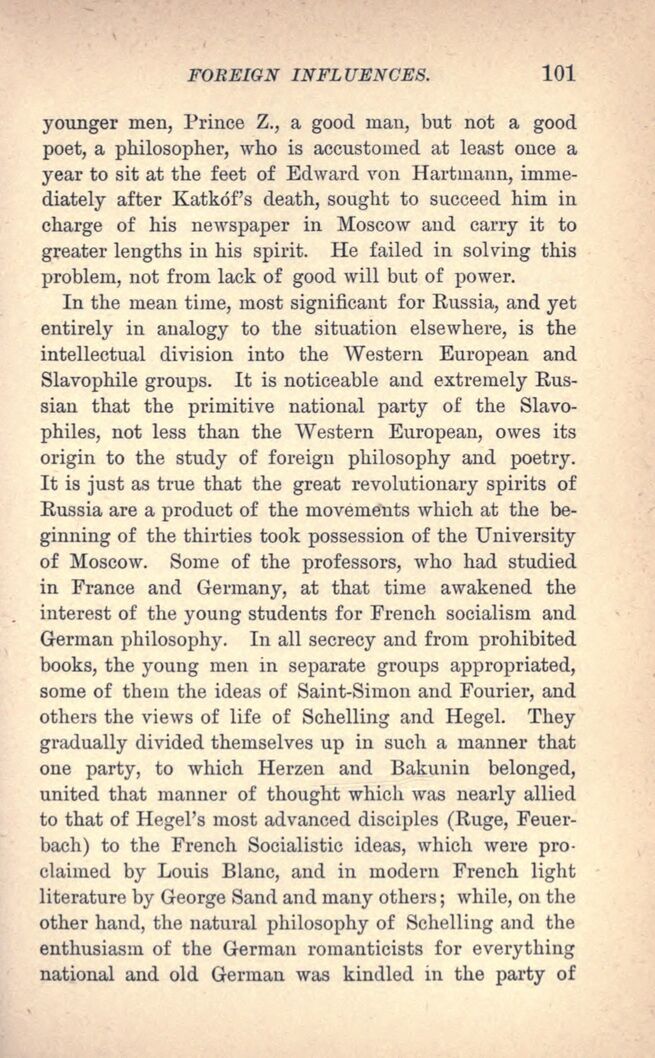
Full resolution (JPEG) - On this page / på denna sida - VI

<< prev. page << föreg. sida << >> nästa sida >> next page >>
Below is the raw OCR text
from the above scanned image.
Do you see an error? Proofread the page now!
Här nedan syns maskintolkade texten från faksimilbilden ovan.
Ser du något fel? Korrekturläs sidan nu!
This page has been proofread at least once.
(diff)
(history)
Denna sida har korrekturlästs minst en gång.
(skillnad)
(historik)
younger men, Prince Z., a good man, but not a good
poet, a philosopher, who is accustomed at least once a
year to sit at the feet of Edward von Hartmann,
immediately after Katkóf’s death, sought to succeed him in
charge of his newspaper in Moscow and carry it to
greater lengths in his spirit. He failed in solving this
problem, not from lack of good will but of power.
In the mean time, most significant for Russia, and yet
entirely in analogy to the situation elsewhere, is the
intellectual division into the Western European and
Slavophile groups. It is noticeable and extremely
Russian that the primitive national party of the
Slavophiles, not less than the Western European, owes its
origin to the study of foreign philosophy and poetry.
It is just as true that the great revolutionary spirits of
Russia are a product of the movements which at the
beginning of the thirties took possession of the University
of Moscow. Some of the professors, who had studied
in France and Germany, at that time awakened the
interest of the young students for French socialism and
German philosophy. In all secrecy and from prohibited
books, the young men in separate groups appropriated,
some of them the ideas of Saint-Simon and Fourier, and
others the views of life of Schelling and Hegel. They
gradually divided themselves up in such a manner that
one party, to which Herzen and Bakunin belonged,
united that manner of thought which was nearly allied
to that of Hegel’s most advanced disciples (Ruge,
Feuerbach) to the French Socialistic ideas, which were
proclaimed by Louis Blanc, and in modern French light
literature by George Sand and many others; while, on the
other hand, the natural philosophy of Schelling and the
enthusiasm of the German romanticists for everything
national and old German was kindled in the party of
<< prev. page << föreg. sida << >> nästa sida >> next page >>